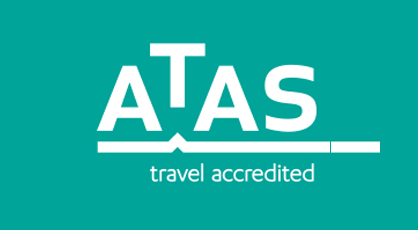With the unexpected revelation that CTS Travel was ATAS accredited, TravelManagers Chairman Barry Mayo suggests a review is needed.
TravelManagers is of the view that individual members of the industry need to publicly acknowledge that an accreditation scheme without consumer compensation is worthless from both consumer and industry perspectives.
Furthermore we believe it’s time to reject ATAS in its current form as it misleads consumers and serves no meaningful purpose other than to deliver revenue to AFTA and justify a bludgeoning bureaucracy.
The situation being experienced by CTS Travel’s customers is precisely what TravelManagers was fearful of. We view this situation is a direct result of state governments disbanding the TCF and replacing it with an ill thought out industry accreditation scheme that failed to demand robust financial criteria or deliver consumer protection in response to AFTA lobbying.
It is possible that CTS Travel would also have failed under the TCF but most importantly its customers would not have been out-of-pocket, the travel agent community’s integrity would not be under threat and it would have been subject to more rigorous financial oversight resulting in some form of bank guarantee or insurance bond to help preserve TCF members’ funds used to cover consumer losses. This in turn would have negated negative media coverage of the travel agent industry which affects each and every travel agency owner in Australia.

AFTA seems to have lost touch with its grass roots membership and to be guilty of a disservice to the majority by lobbying government to abolish the TCF without a meaningful replacement. AFTA management appears to have tacitly approved for TCF members’ funds to be distributed to government as general revenue calculated on a prorate basis by the number of TCF members in each state as the price for deregulation.
In our view the state governments are actually guilty of disbanding the TCF without ensuring that ATAS offered something worthwhile to the travelling public. The electorates deserve to be treated better.
Its time AFTA members accept some accountability for having allowed this to happen and for placing their trust in an organization that appears to be no longer representative of many of the Association’s members i.e. small/medium business owners.
When the TCF was disbanded it was reportedly holding $34 million of accumulated travel agent contributions. Today that figure is $25 million – so where did $9 million go?
- Wasteful disbursements to AFTA for the establishment and promotion of ATAS and CHOICE and state consumer affairs departments to fund consumer education programs.
- Communication of this deregulation of the travel agent industry.
- The continuation of running TCF in caretaker mode.
- Payment of outstanding consumer claims.
- The collection of monies being pursued through the courts for the misrepresentation of company financials and/or knowingly trading while insolvent.
The $25 million residual should be sufficient to re-establish the TCF, with a meaningful membership criteria and provide the community with effective consumer compensation in the event of travel agency failures and the industry.
It was as recognition once ATAS’ shortcomings became known that TravelManagers collaborated with Gow Gates Insurance Brokers over several months to develop its own Trust Account Fidelity Risk Insurance which was announced in August 2014 with the full details of the insurance cover and operation published on its company website.
Prior to this TravelManagers, both direct, and via its parent company House of Travel, communicated with state, territory and federal ministers responsible for Consumer Affairs, Small Business and Tourism; initially seeking the retention of the TCF and eventually acceptance that ATAS must have both a robust financial criteria and deliver consumer protection.
This activity involved meeting with a number of ministers and/or their department heads to be mostly advised that the disbandment of the TCF and its replacement by ATAS is what AFTA had advised them the industry wanted. At no time was there comment about what the consumer might want.

These meetings included Mike Baird, the Premier of NSW, who was genuinely sympathetic to loss of consumer protection but, to be fair, this was after the Travel Industry Transition Plan had been adopted and legislated for the removal of travel agent licensing with its related consumer compensation.
CTS Travel is the tip of the iceberg and TravelManagers is hopeful that Mr Baird and his fellow State Premiers will recognize this and take immediate steps to reinstate the TCF with its financial oversight of the industry and provision of consumer protection. In saying this we recognize there were shortcomings in the TCF as it previously stood and that with goodwill and common purpose these can be addressed to ensure it is more equitable than some may have perceived.
TravelManagers elected to become ATAS accredited because AFTA made ATAS accreditation a requirement for AFTA members to retain their AFTA membership.
It is TravelManagers’ belief that an association representing a large part of the travel agency community is important for the industry and that if there is to be change then change would be better served by persuasion from within AFTA rather than external pressure. Under the TCF there was blanket consumer protection. With ATAS there is no protection required and where it is available through individual companies it is very opaque.
We need to have a strong AFTA that is representative of all its members and with a vision that compliments the needs and desires of travel consumers.
In the lead up to its disbandment TCF had about 4,800 members, just this last week a spokesperson for ATAS claimed it is steamrolling its way to 3,500 accredited agents which is about 70% of the former TCF membership and makes no allowance for the many new travel agents that appear to have opened their doors, some without adequate qualifications or capital since, June 2014.
Also this week an ATAS spokesman was quoted as saying “CTS Travel is the first agent affected in “almost 11 months of trading in the deregulated environment”, this is blatantly incorrect as identified in various media reports and from an AFTA member’s perspective unacceptable.
The big questions to be answered are what is an acceptable accreditation system and what must it encompass from industry, consumer and government perspectives? And most importantly where to from here?






